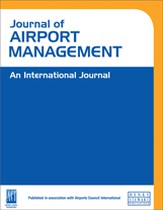Emerging trends in airport–airline use and lease agreements in the USA
Abstract
Over the past several years the negotiation strategy and goals of airports in the USA have changed significantly with regard to agreements with their airline partners. Increased volatility and changing airline and airport business models have resulted in the displacement of the traditional term periods for use and lease agreements, resulting in much shorter agreements that are designed and anticipated to meet the needs of the parties for the near term only. Given this new context, it is important to understand where the use and lease agreement fits within the overall financial framework of the airport. This paper identifies some of the most important considerations in drafting a use and lease agreement in the current climate, including rate-setting methodologies and restrictions, cost centres, control over revenue and capital expenditures, access and competition, and risk allocation. In the end, it is important for each airport operator’s negotiating strategy to clearly reflect its financial, operational and developmental goals, and to account for the practical strengths and limitations of the airlines with which it is negotiating. This paper will be particularly useful to new chief financial officers, controllers and airport property personnel, as well as persons on airport governing bodies.
The full article is available to subscribers to the journal.
Author's Biography
Joseph F. Messina is general counsel to Philadelphia International Airport in Philadelphia, PA. He is a divisional deputy city solicitor in the City of Philadelphia Law Department. For the past 18 years, he has been responsible for the oversight of all regulatory and transactional legal work at the airport.
Eric T. Smith is a partner at Kaplan Kirsch & Rockwell LLP, which has offices in Denver, CO and Washington, DC. He concentrates his practice in the aviation, airport and aviation-based labour, airport concessions, airspace design and bankruptcy arenas. He represents airport owners and operators of all sizes across the USA, providing legal counsel on a full spectrum of issues that range from drafting large-scale operating agreements, to acquiring federal assistance for obtaining and maintaining air carrier service, to securing federal grants for physical improvements to the airport.
